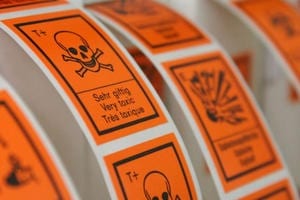6/24/2015

For the first time in nearly 40 years, significant reforms to the 1976 Toxic Substances Control Act (TSCA) may finally take place as the House of Representatives passed a bill on Tuesday by a 398-1 vote on HR 2576, offering major changes to the law. The passage comes as a Senate panel advanced another bill, SB 697, last month that contains even more sweeping reforms; however critics say that bill is also much more politically polarizing as well as more favorable to the chemical industry. The House bill appears to be a compromise for all parties involved, although far from a total victory from any particular perspective. The TSCA is largely regarded as one of the weakest pieces of legislation in the U.S. code, and its lengthy and convoluted regulation of dangerous substances and the power of the chemical industry lobby have been largely responsible for substances like asbestos and formaldehyde remaining on the market. The urgency for reform was influenced by a massive spill in West Virginia last year of the unregulated chemical, crude MCHM, which contaminated drinking water for 330,000 people. The House bill will now move on to the Senate for approval, although it is likely that a compromise will be reached, with the Senate adding two or three amendments to the legislation. A vote on a comprehensive bill will likely take place later in the year.
Among the many reforms, HR 2576 will create a uniform national regulatory system, a major change as many states have created their own systems in place of the weak national standards. In another major change, the Environmental Protection Agency (EPA) will no longer base their safety assessments primarily on cost, as the current standards require the agency to choose the “least burdensome” method of addressing a safety issue. Instead, the bill requires the assessment to be made on scientific evidence alone. The bill will also give the EPA more authority to collect safety data, as well make it harder for chemical companies to conceal vital information from the public. The bill will also require “vulnerable subpopulations” like pregnant women and children to be protected by chemical safety standards. The House version, however, will keep in place the current standard for screening new chemicals. Whereas the Senate version will require the EPA to approve new chemicals before they are introduced to the market, the current system mandates give the EPA a 90-day deadline to prove they are unsafe or they are approved by default. Representative John Shimkus notes that the bill is a compromise, stating “We want our constituents to be safe and we want markets to work. This bill delivers both.”
The American Chemistry Council appears pleased with the House passage, releasing a statement saying the bill “will build confidence in the U.S. chemical regulatory system, protect human health and the environment from significant risks, and meet the commercial and competitive interests of the U.S. chemical industry and the national economy.” To some degree, environmental groups are also mildly pleased with the increased regulatory clout, as well as the House bill’s less-intrusive approach towards state-level safeguards compared to the Senate version, but many feel the bill is written too much in favor of the chemical lobby. Although the Senate bill more aggressively interferes with tougher state-level standards in places like California, Massachusetts, and Vermont, critics note that there is much legal ambiguity in the language of the House bill regarding the relationship between federal and state regulators. Environmental Working Group president, Ken cook cited the fact that funding for the increased EPA presence will need congressional approval, leaving it vulnerable to political infighting. Cook said, “Congress has neglected the problem of dangerous chemicals in consumer products for decades, to the great benefit of chemical industry profits. American families should not have to wait more decades for a regulatory system that aggressively protects their health from toxic chemicals.”
Sources:
AAAS Science Insider – Puneet Kollipara
Environmental Working Group – Monica Amarello
Newsweek – Zoe Schlanger
New York Times/Associated Press


Join the conversation!